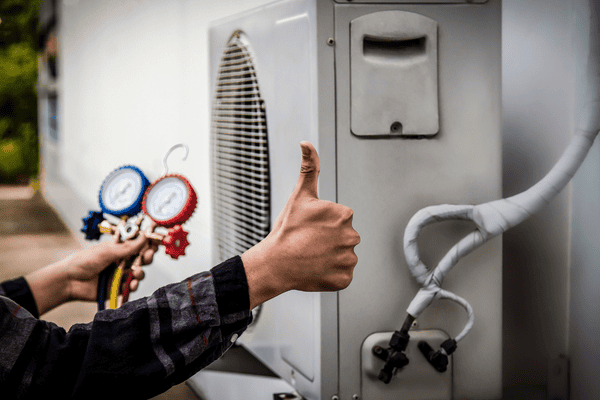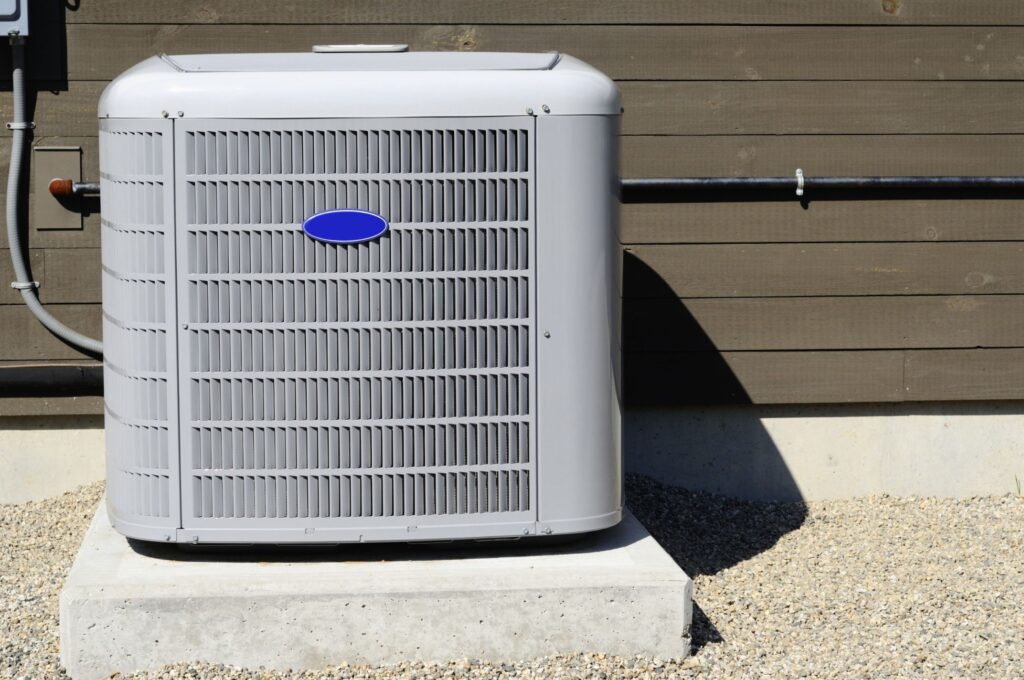How Much Does It Cost To Replace Your Hvac System?

Your HVAC system is on the fritz—again. Now you’re stuck wondering: Should you repair it one more time or just bite the bullet and replace the whole thing? What’s it cost to replace your HVAC system? It’s a dilemma many homeowners face, especially when your system decides to act up during a heatwave or a cold snap.
Replacing your HVAC system is a big investment, but it’s also an opportunity to upgrade your comfort, save on energy bills, and avoid those frustrating mid-summer breakdowns. Let’s break down everything you need to know about HVAC replacement costs so you can plan smarter and make the best decision for your home.
Is It Time to Replace Your HVAC System?

How do you know whether it’s time to replace your HVAC system or just go for another repair? Here are some key signs to look out for:
- It’s Inefficient: If your system struggles to heat or cool your home evenly or your energy bills are unusually high, it may be time for an upgrade.
- Frequent Repairs: Are you constantly calling for HVAC repairs? If repair costs are adding up to more than 50% of a new system’s value, it’s time to replace.
- It’s Old: Most HVAC systems last 10–15 years. If yours is nearing or past this age, it’s likely operating inefficiently and prone to breakdowns.
- Unusual Noises or Odors: Clanking, banging, or burning smells are clear signs something’s wrong—and repairs may not be enough.
Think of it this way: If your system is costing you more in repairs, energy bills, or stress, replacing it might save you money and headaches in the long run.
What Impacts the Cost to Replace Your HVAC System?
The cost to replace your HVAC system isn’t one-size-fits-all. Several factors influence the final price tag:
1. Your Home’s Size
The size of your home determines the capacity of the HVAC system you’ll need. Larger homes require more powerful systems, which increase costs.
Tip: Ensure your contractor calculates the correct system size using a process like Manual J load calculations. Oversized or undersized systems can lead to inefficiency, higher energy bills, and reduced system lifespan.
2. The Type of System You Choose
Different types of HVAC systems come with varying price ranges:
- Ductless Mini-Split Systems: Great for zoning and energy savings; costs range from $4,000–$10,000 depending on the number of zones.
- Central Air Conditioners: A popular choice for most homes; costs range from $5,000–$12,000.
- Heat Pumps: Handle both heating and cooling; prices range from $6,000–$12,500.
3. Energy Efficiency and SEER Ratings
High-efficiency systems with better SEER (Seasonal Energy Efficiency Ratio) ratings cost more upfront but can significantly reduce your monthly utility bills.
Pro Tip: Check for tax credits or rebates available for energy-efficient models to help offset the higher upfront costs.
4. Installation Costs
Labor and installation fees vary depending on the complexity of the job and your location. Additional costs may include:
- Removal of the old system.
- Adjustments to ductwork or other components.
- Ensuring proper installation of the new system.
Repair vs. Replace: Making the Right Choice
One of the biggest questions homeowners face is whether to repair their existing HVAC system or invest in a replacement. While repairs might seem cheaper upfront, the long-term costs and benefits often favor replacement. Here’s a comparison:
Common HVAC Repair Costs
- Blower Motor Replacement: $400–$1,500
- Refrigerant Leak Repair: $200–$1,500 (depending on the extent of the leak and refrigerant type)
- Capacitor Replacement: $150–$300
- Compressor Repair or Replacement: $1,000–$2,500
- Thermostat Repair/Replacement: $100–$600
If your system is relatively new and still under warranty, repairs may make sense. But for older systems, repeated breakdowns can quickly exceed the cost of a replacement.
When Replacement Makes More Sense
- Frequent Repairs: If repair costs exceed 50% of a new system’s price, replacement is likely the smarter financial move.
- Outdated System: Older systems are less efficient and prone to failure. Modern systems can save you 20–50% on energy costs.
- Long-Term Savings: High-efficiency systems might cost more upfront but often pay for themselves through lower energy bills and fewer repairs.
Repair vs. Replacement: Quick Comparison
| Factor | Repair | Replacement |
|---|---|---|
| Upfront Cost | Lower, typically a few hundred to a few thousand dollars. | Higher, averaging $5,000–$12,000. |
| Lifespan Impact | Temporary extension of system life. | Provides 10–15 years of reliable performance. |
| Energy Efficiency | No improvement; older systems remain inefficient. | Significant improvement with lower energy bills. |
| Long-Term Costs | Can add up with frequent repairs. | Lower maintenance and energy expenses. |
| Resale Value Impact | None; buyers may see the system as outdated. | Increases home resale value and buyer appeal. |
Pro Tip: Calculate the repair cost per remaining year of use. For example:
- Repair Cost: $1,500
- Estimated Remaining Lifespan: 2 years
- Cost per Year: $750/year
Compare this to the cost of a new system spread over its lifespan. A $7,500 system lasting 15 years costs only $500/year—plus energy savings!
How Much Should You Budget?
On average, the cost to replace your HVAC system ranges from $5,000 to $12,000. Here’s what’s typically included:
- The HVAC unit itself.
- Labor and installation fees.
- Warranties for parts and equipment.
- Additional services like old system removal and ductwork adjustments.
Tip: Always request an itemized quote so you know exactly what’s included and can easily compare estimates from different contractors.
Tips to Save on HVAC Replacement Costs
Replacing your HVAC system doesn’t have to break the bank. Here’s how to ease the financial burden:
- Get Multiple Quotes: Collect at least 2–3 estimates from licensed contractors to find competitive pricing.
- Take Advantage of Incentives: Look for manufacturer rebates, seasonal promotions, or financing options.
- Invest in Energy Efficiency: Energy-efficient systems may qualify for tax credits and save you money on utility bills over time.
- Replace Off-Season: Spring and fall are less busy for HVAC professionals, which can mean better pricing.
Why Professional Installation Matters
When it comes to replacing your HVAC system, DIY isn’t an option. Here’s why hiring a professional is essential:
- Avoid Costly Mistakes: Improper installation can lead to inefficiency, frequent breakdowns, and even voided warranties.
- Ensure Safety: HVAC systems involve gas, electrical, and refrigerant connections that require specialized knowledge.
- Maximize Performance: A skilled professional ensures your system operates at peak efficiency, extending its lifespan.
Pro Tip: Choose a contractor who’s licensed, insured, and highly reviewed. Ask for a written estimate and detailed explanation of the work.
The Bottom Line: Making a Smart Investment
Replacing your HVAC system is a big decision, but it doesn’t have to be stressful. By understanding the costs, weighing repair vs. replacement, and planning ahead, you can make a confident choice that keeps your home comfortable and energy-efficient for years to come.
Ready to replace your HVAC system? Contact a trusted professional for a free quote today and take the first step toward a more comfortable, efficient home!
